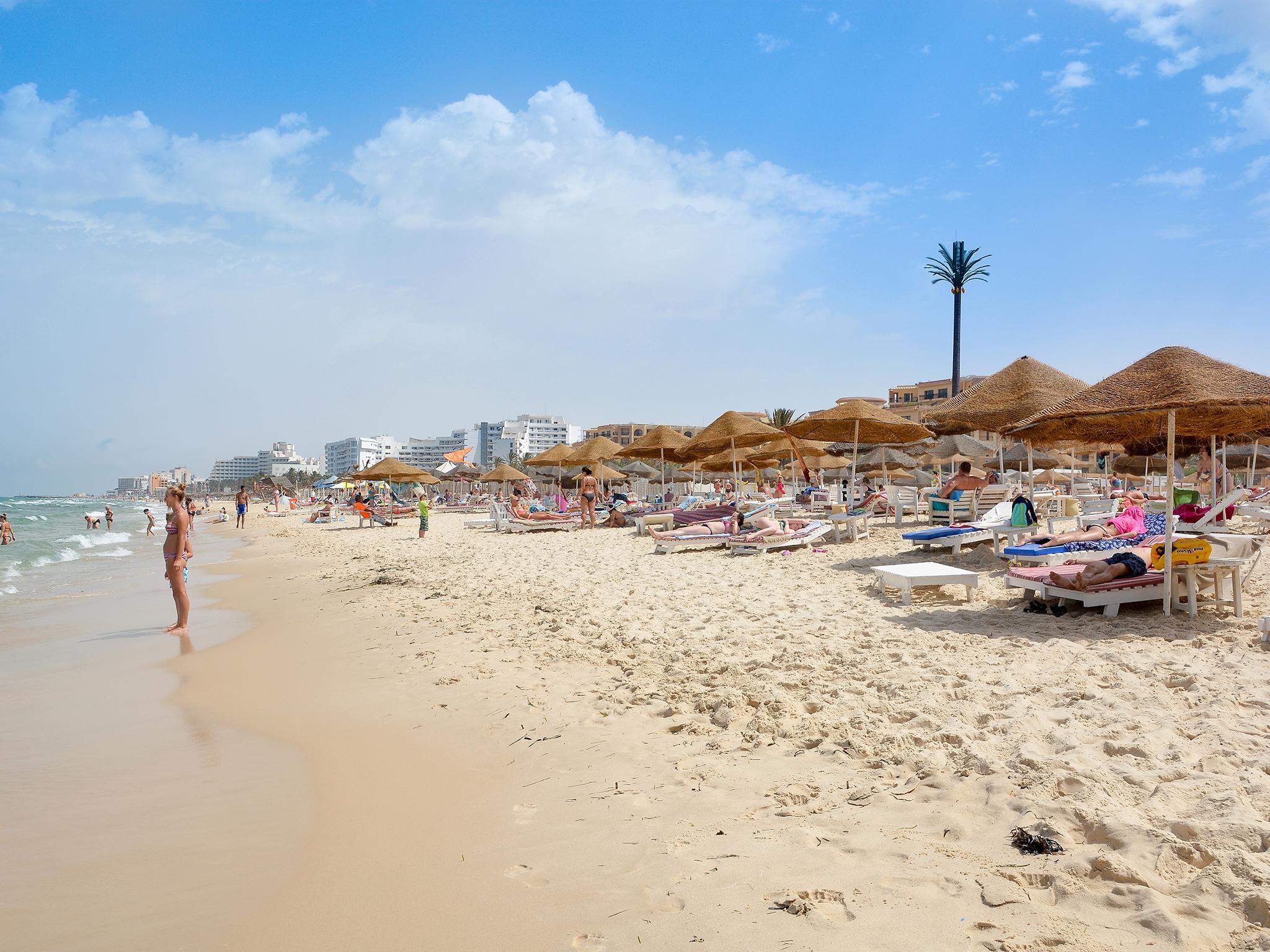Tunisia state of emergency: Is it safe to visit for UK tourists?
The state of emergency has been in place since November 2015

Your support helps us to tell the story
From reproductive rights to climate change to Big Tech, The Independent is on the ground when the story is developing. Whether it's investigating the financials of Elon Musk's pro-Trump PAC or producing our latest documentary, 'The A Word', which shines a light on the American women fighting for reproductive rights, we know how important it is to parse out the facts from the messaging.
At such a critical moment in US history, we need reporters on the ground. Your donation allows us to keep sending journalists to speak to both sides of the story.
The Independent is trusted by Americans across the entire political spectrum. And unlike many other quality news outlets, we choose not to lock Americans out of our reporting and analysis with paywalls. We believe quality journalism should be available to everyone, paid for by those who can afford it.
Your support makes all the difference.Tunisia has announced it is extending its state of emergency for another seven months.
“Following consultations with Prime Minister Yusuf Al-Shahid and Parliament Speaker Mohamed Al-Nasser, President Beji Caid Essebsi has decided to extend the state of emergency for seven more months,” Tunisian authorities announced in a statement on 12 March.
The state of emergency has been in place since November 2015, following a terrorist attack on a police bus in central Tunis, which killed 12 security personnel.
It has been reviewed regularly and extended a number of times since then.
The Foreign and Commonwealth Office (FCO) says in its advice: “Since the terrorist attack in Sousse in June 2015, which targeted tourists, the UK government has been working closely with the Tunisian authorities to investigate the attack and the wider threat from terrorist groups. The Tunisian government has improved protective security in major cities and tourist resorts.
“But terrorists are still very likely to try to carry out attacks in Tunisia. Security forces remain on a high state of alert in Tunis and other places. You should be vigilant at all times, including around religious sites and festivals. Follow the advice of the Tunisian security authorities and your travel company if you have one.”
The UK government gave the all-clear for holiday companies to return to Tunisia in July 2017 after a two-year period of advising against all travel there, but there are still no-go areas to the south and the east of the country.
The FCO advises against all travel to: the Chaambi Mountains National Park and the designated military operations zones of Mount Salloum, Mount Sammamma and Mount Mghila; the militarised zone south of the towns of El Borma and Dhehiba; within 20km of the rest of the Libya border area north of Dhehiba; and the town of Ben Guerdane and immediate surrounding area.
However, the FCO doesn’t advise against travelling to the most popular tourist areas, including Hammamet, Sousse, Carthage and Tunis.
Tour Operator Thomas Cook relaunched holidays to Tunisia in February 2018; the first flight from Birmingham to the Tunisian resort airport of Enfidha was completely sold out.
“Since it closed for British holidaymakers three years ago, we’ve had lots of customers asking us when Tunisia will be back on sale,” said group head of customer welfare Carol MacKenzie. “Its soft, long beaches with year-round sun, historic ruins and enchanting desert villages make Tunisia a destination that attracts lots of loyal visitors.”
In response to demand the tour operator has launched three weekly flights to Enfidha from Manchester, London Gatwick and Birmingham, expanding to include Glasgow from April and Newcastle and London Stansted from May. Holidays are offered in a handful of resorts, mainly near Hammamet.
“When I visited Tunisia last year, I noticed the increase in security presence on the hotel beaches, and the holidaymakers I spoke to talked of the good, friendly relationship they have with the hotel security and police who patrol the beach and tourist areas,” said MacKenzie.
“It was also clear how closely the hotels and the police work together, and their excitement about the British customers returning to their country.”
A spokesperson for ABTA said: “Tunisia has long been a popular holiday destination for British tourists – offering beach breaks, diverse countryside and the chance to visit Roman ruins, all at good value – so it’s no surprise that it is proving popular once again.
“Whichever part of the world holidaymakers are planning to visit, they should always check Foreign Office advice before booking and travelling to a destination.”
Join our commenting forum
Join thought-provoking conversations, follow other Independent readers and see their replies
Comments